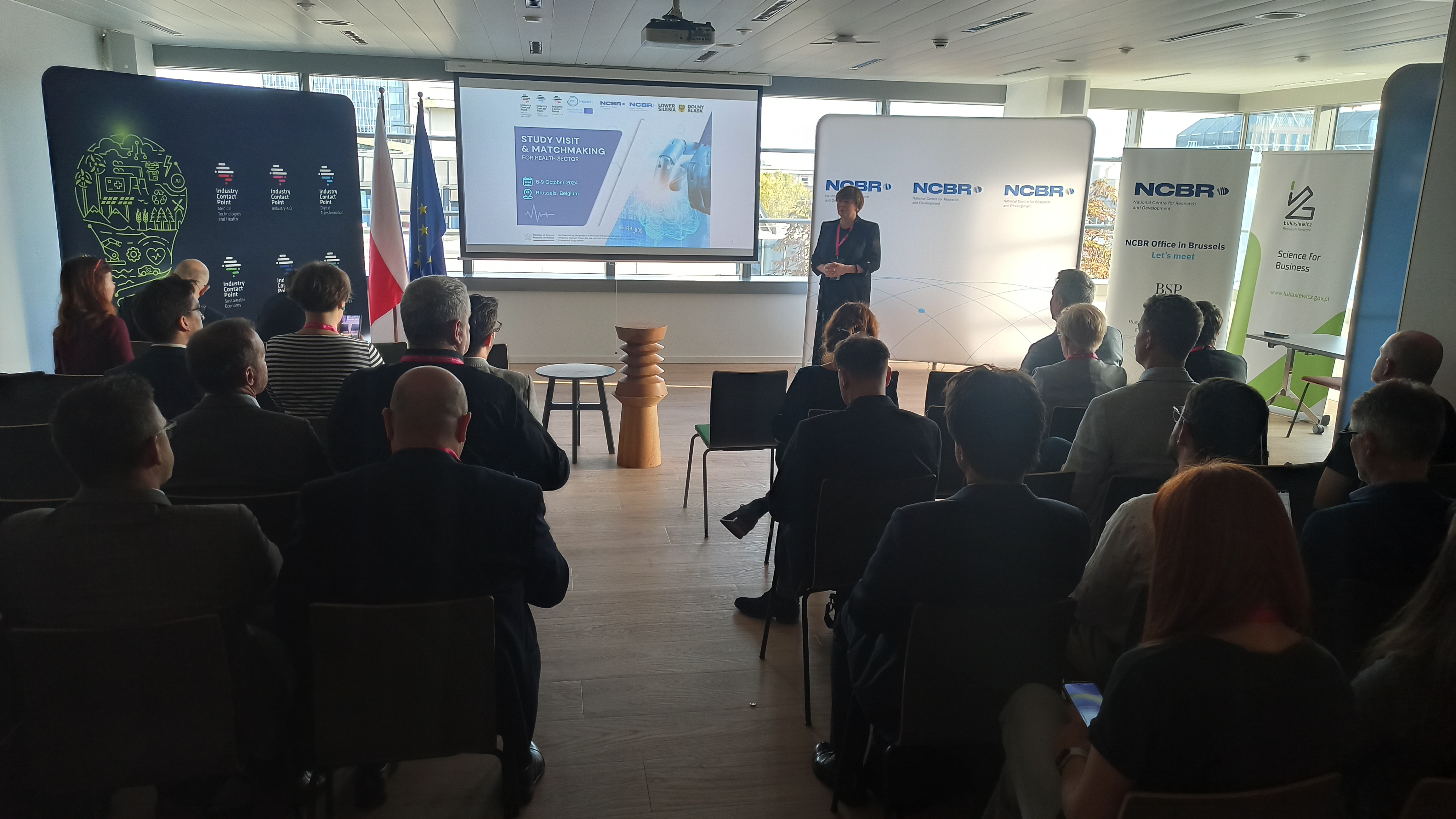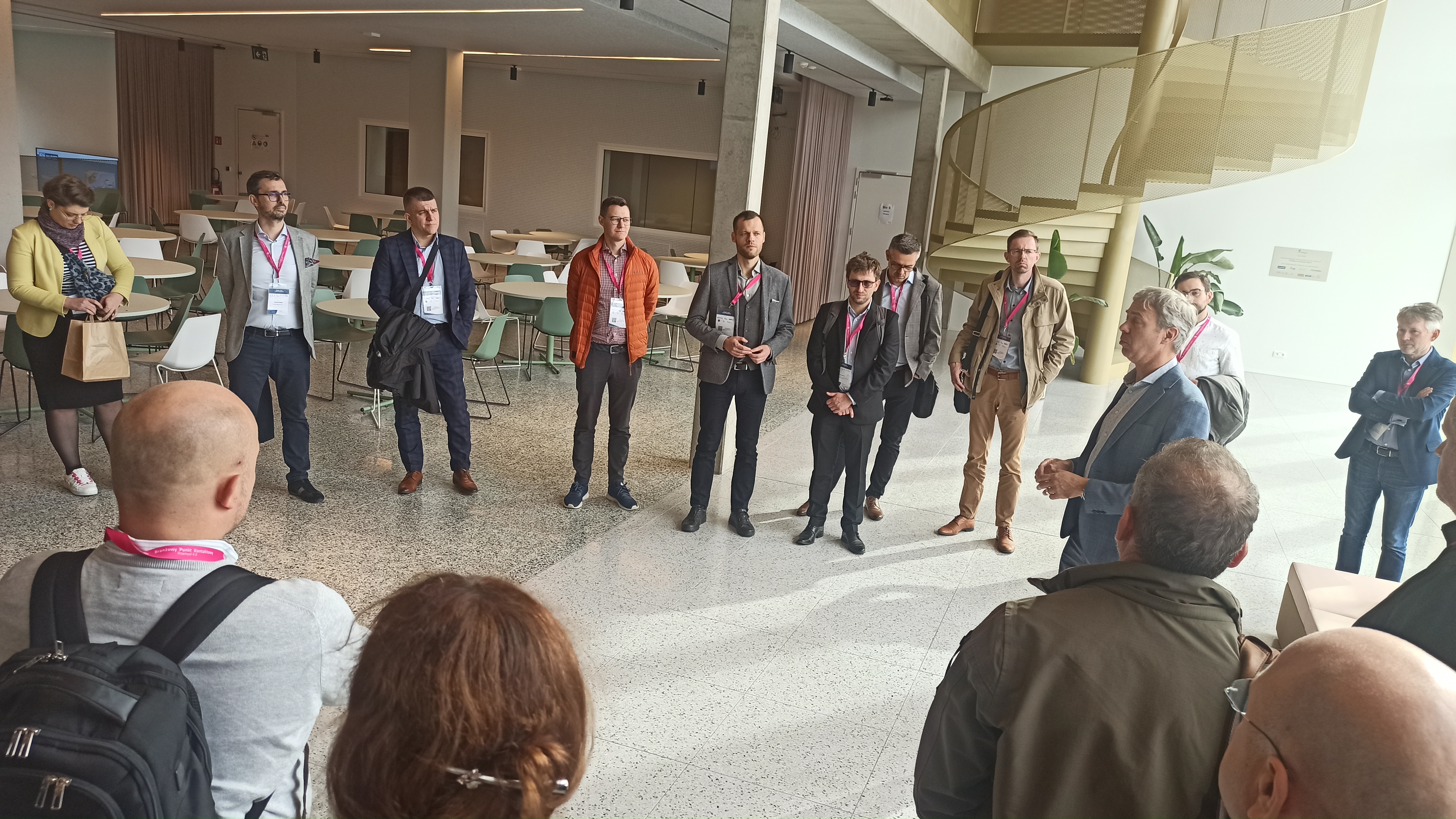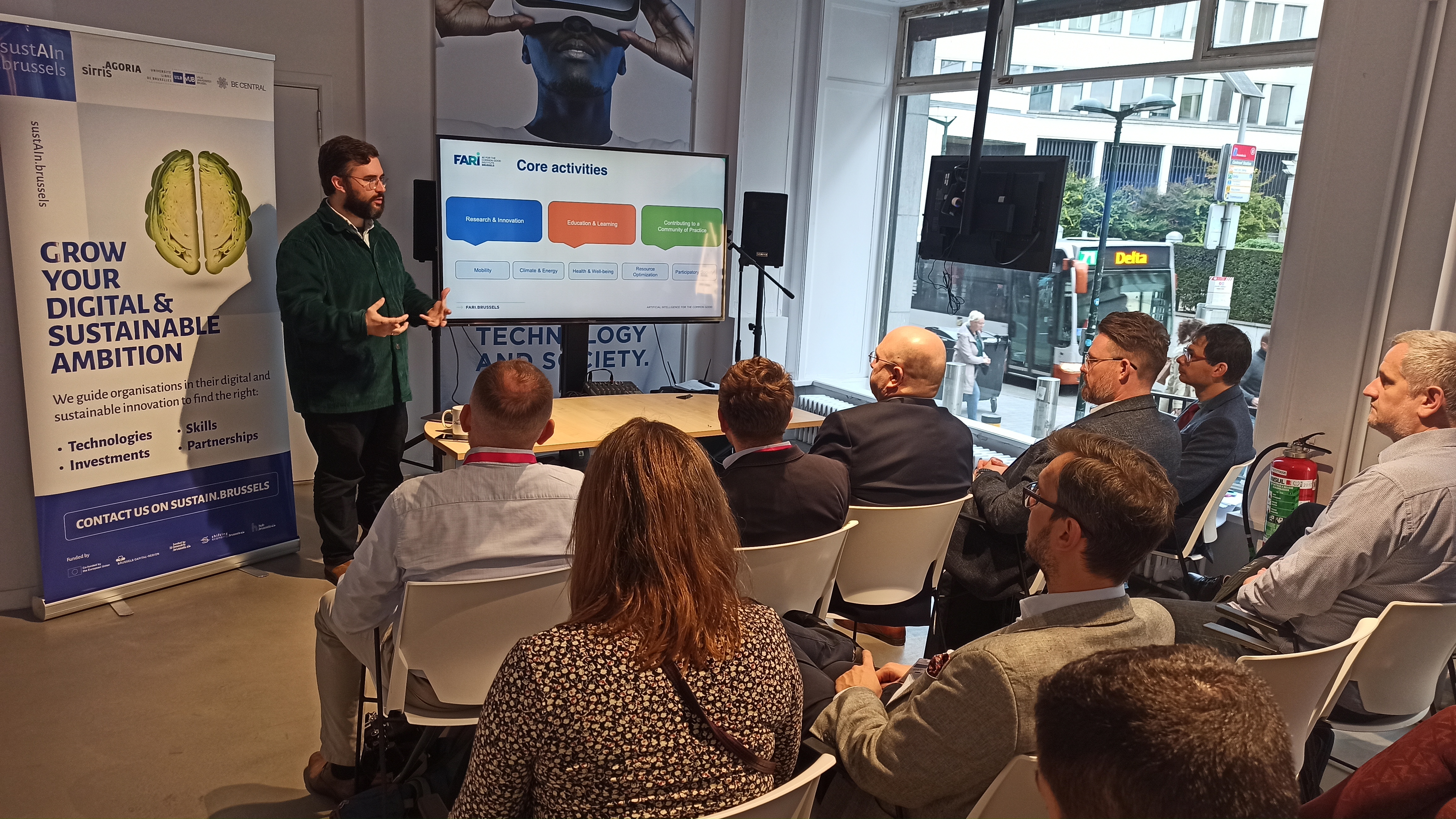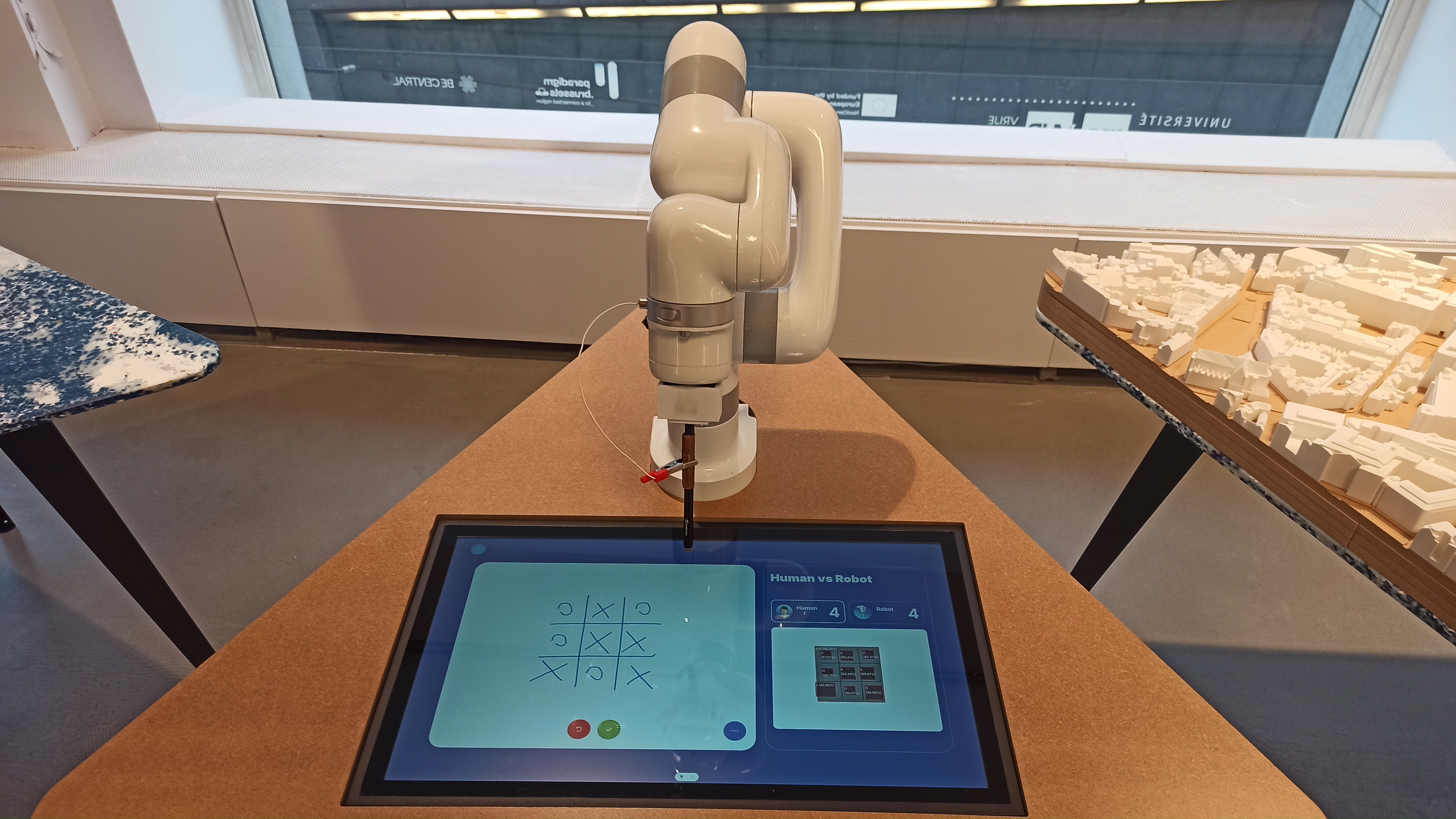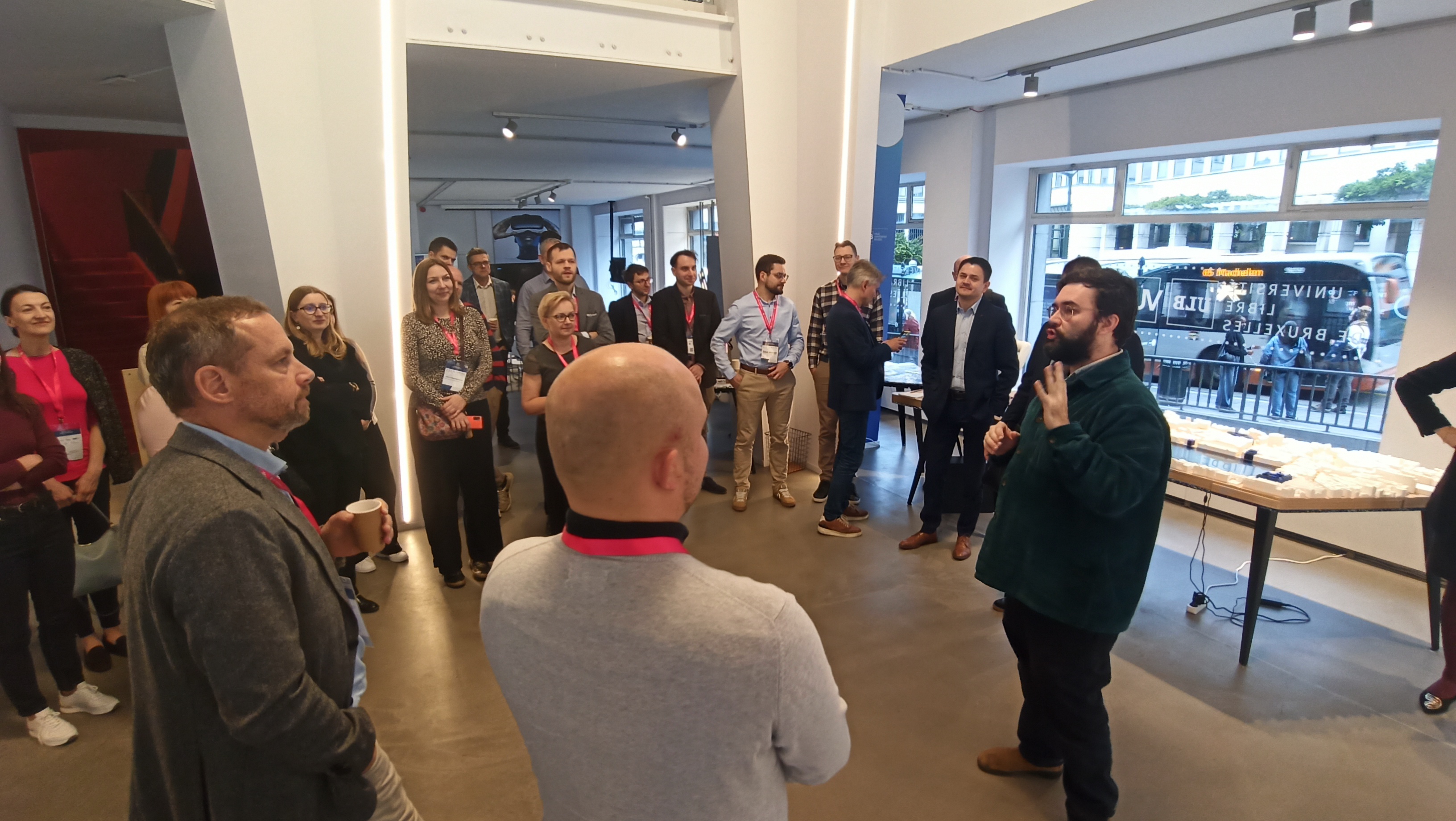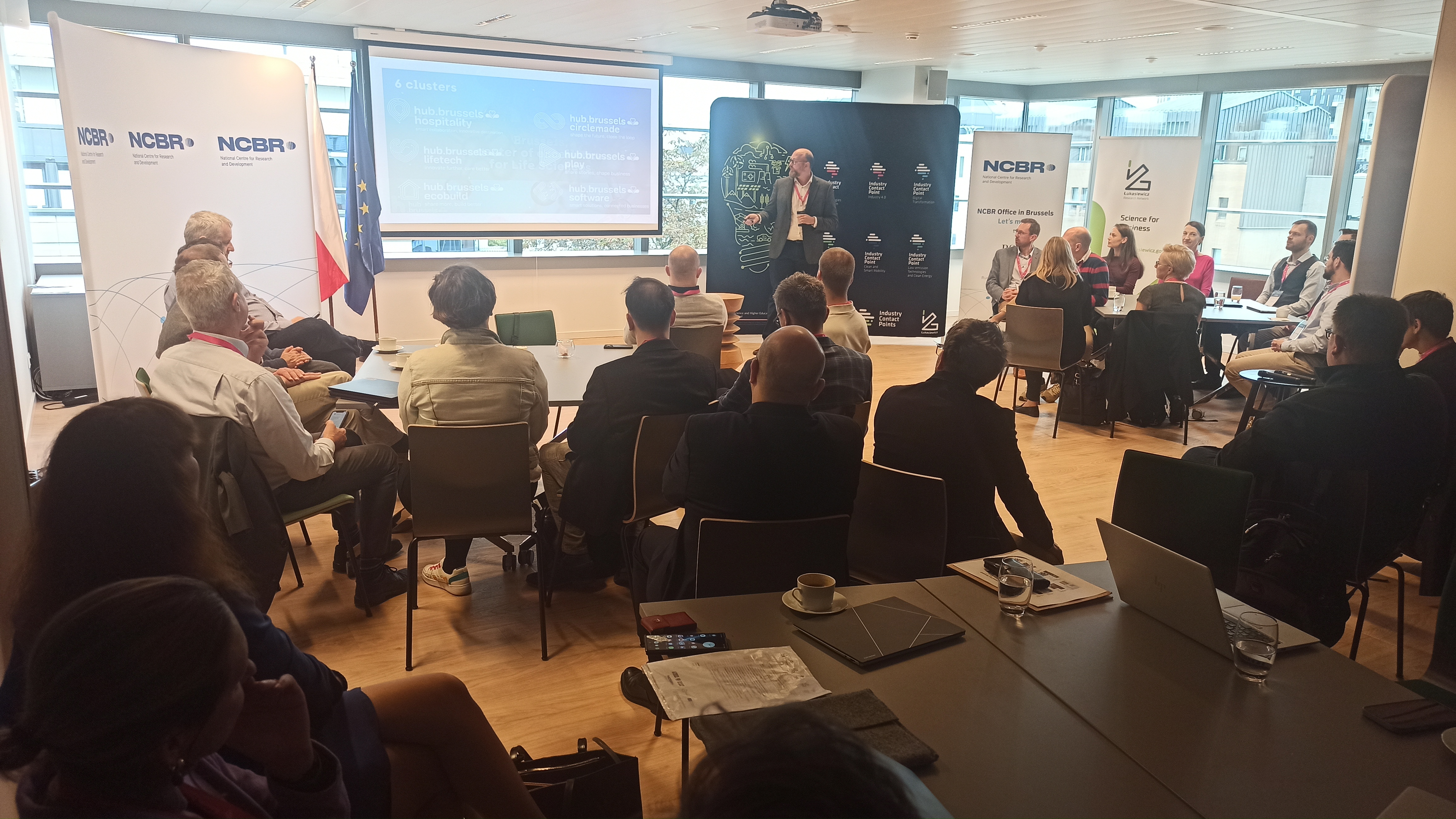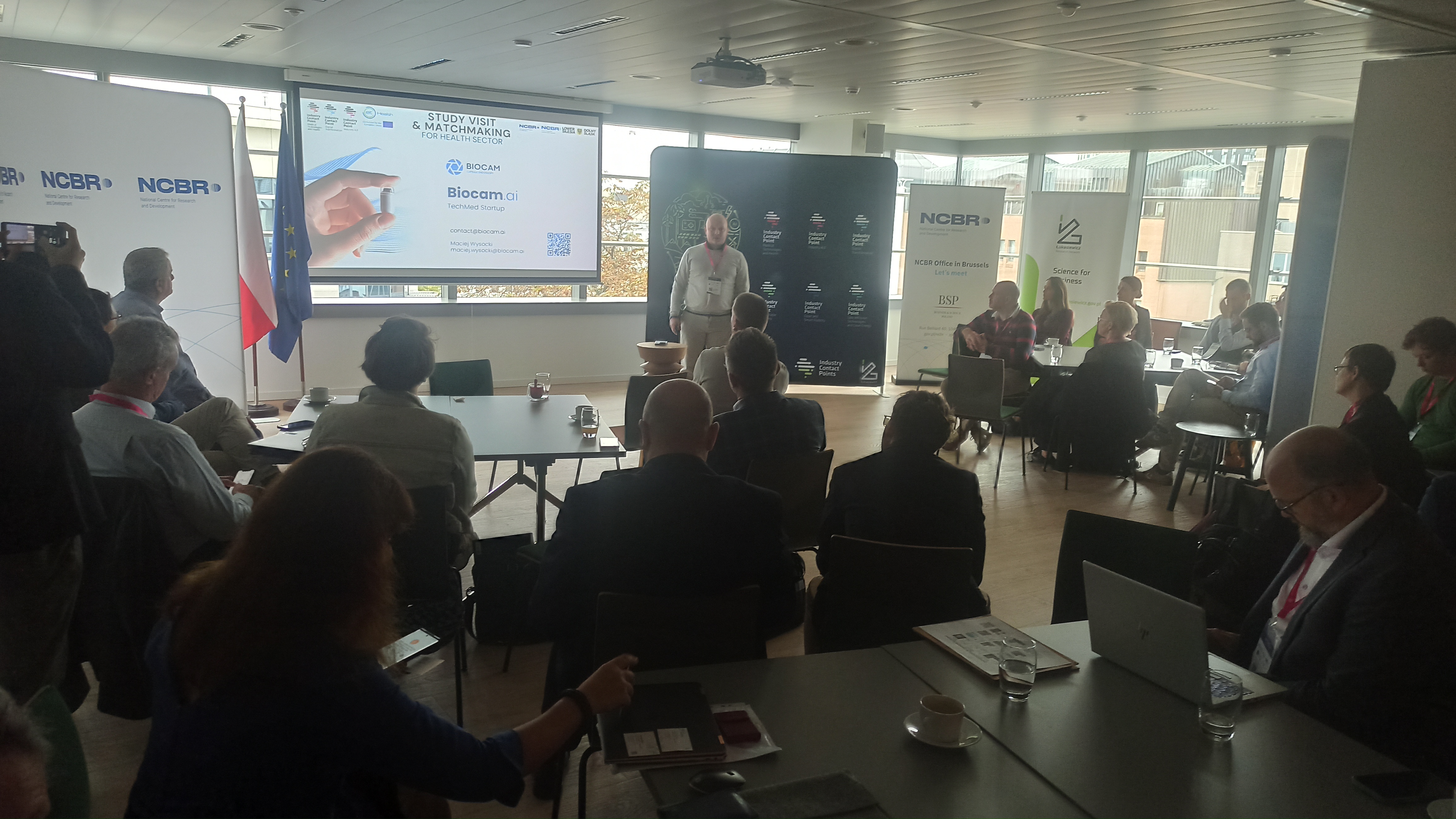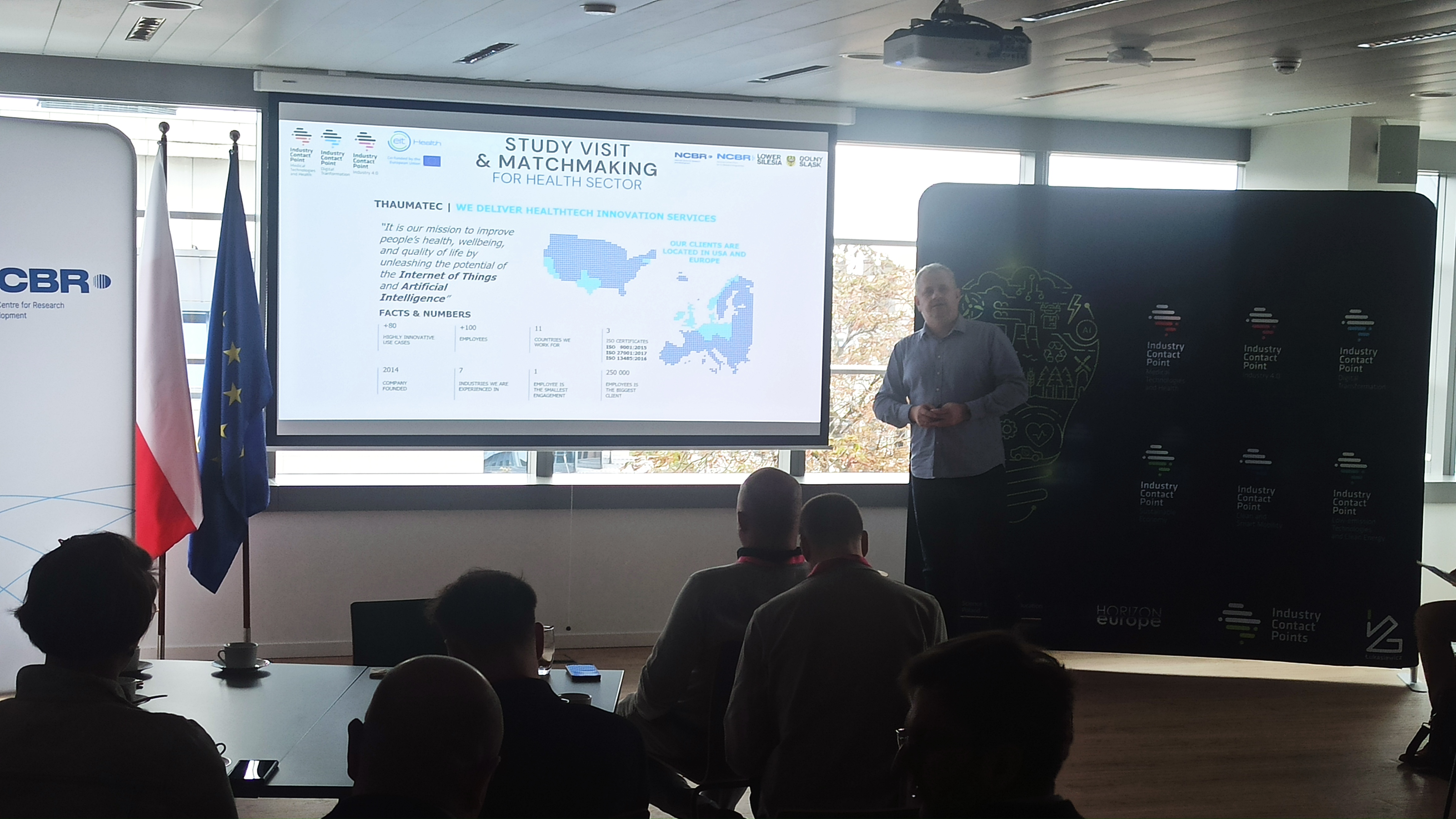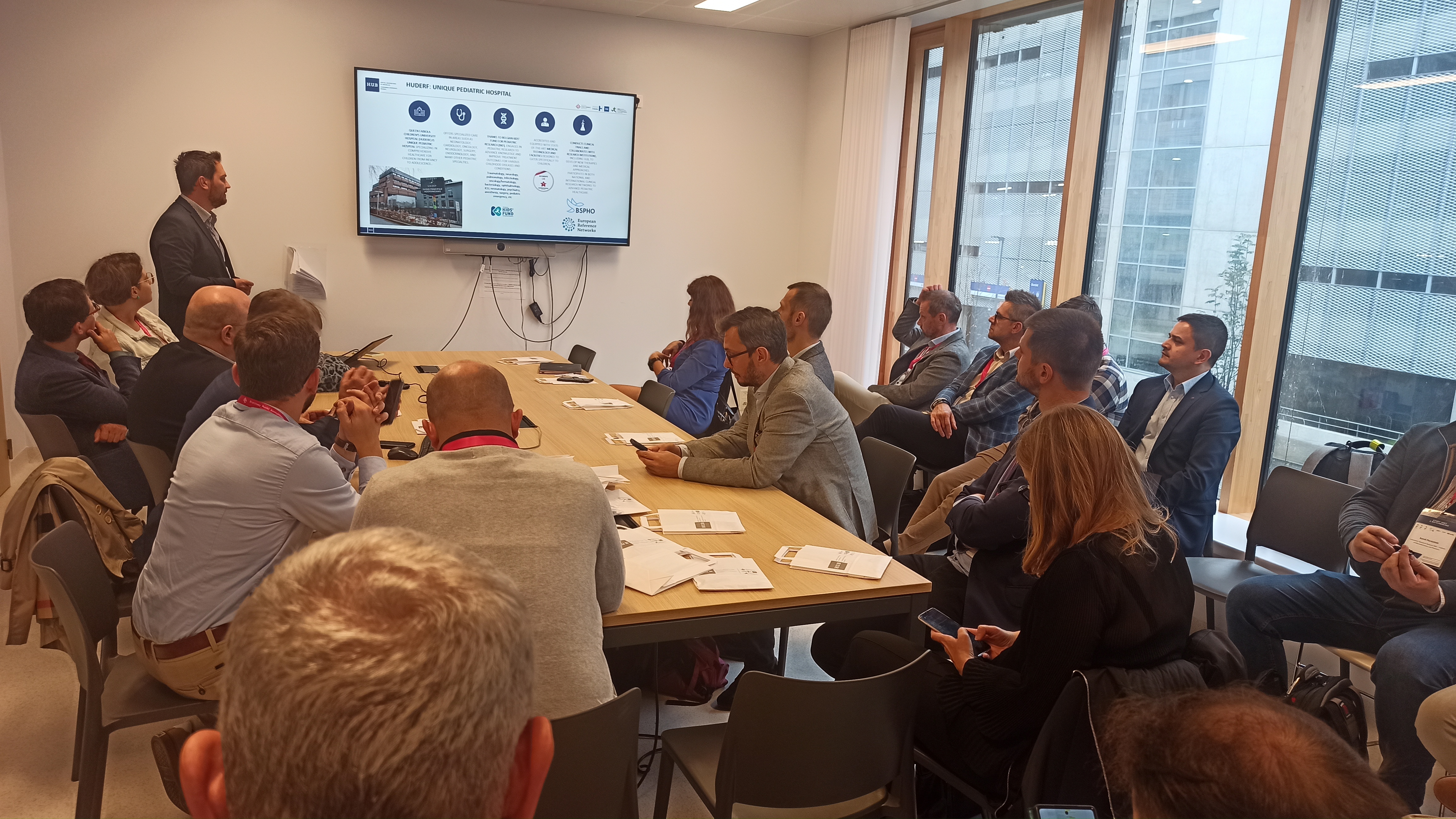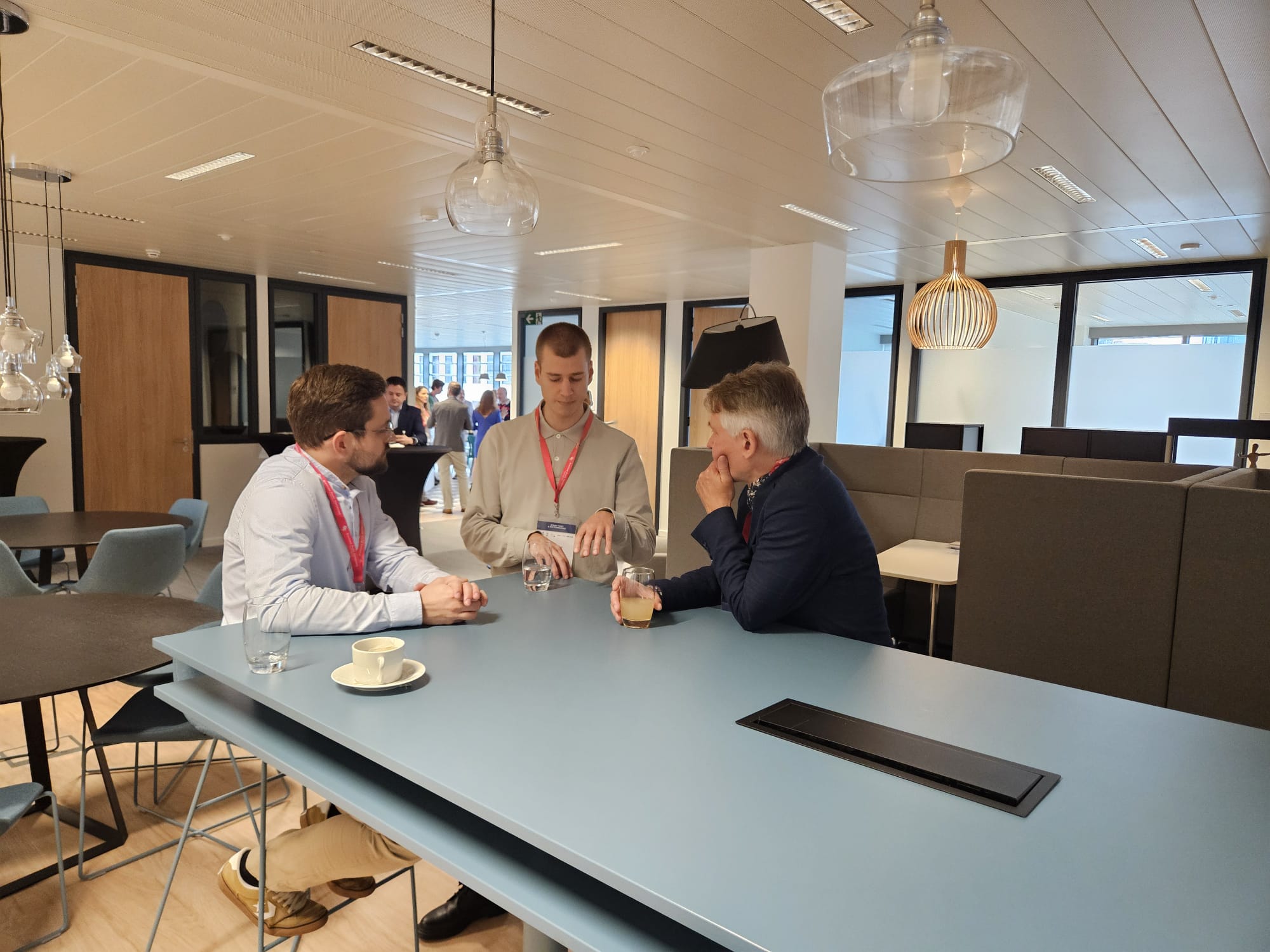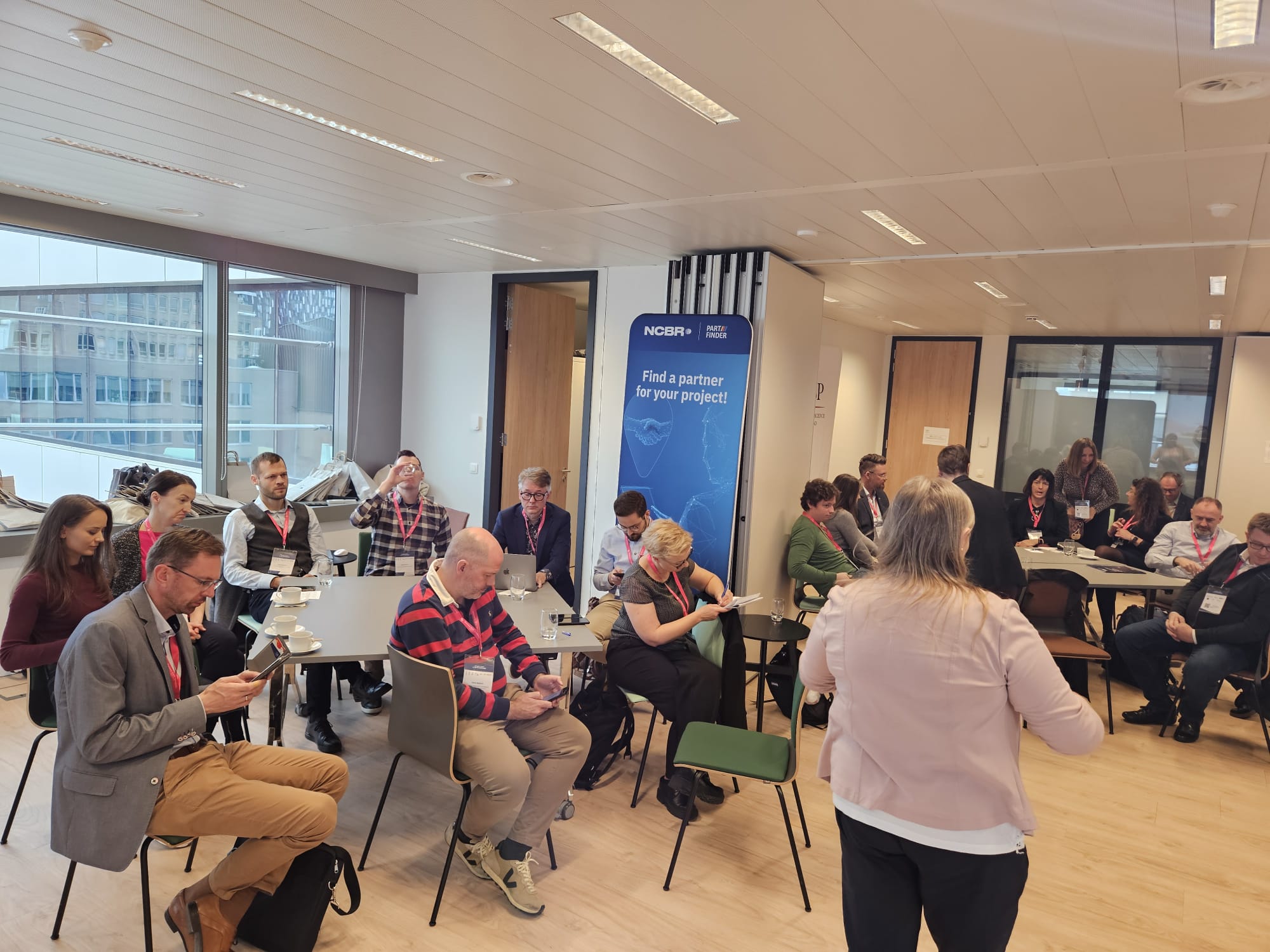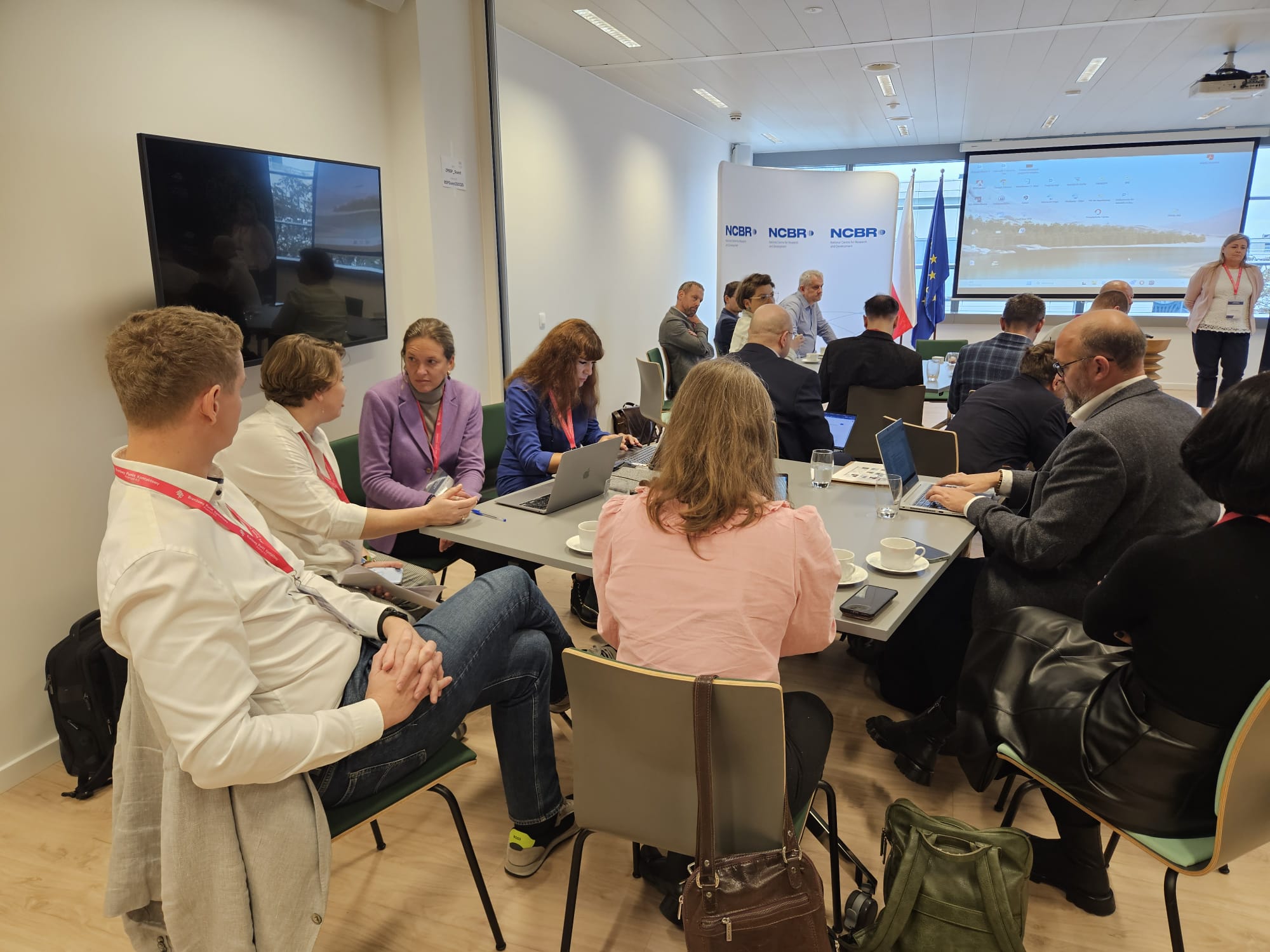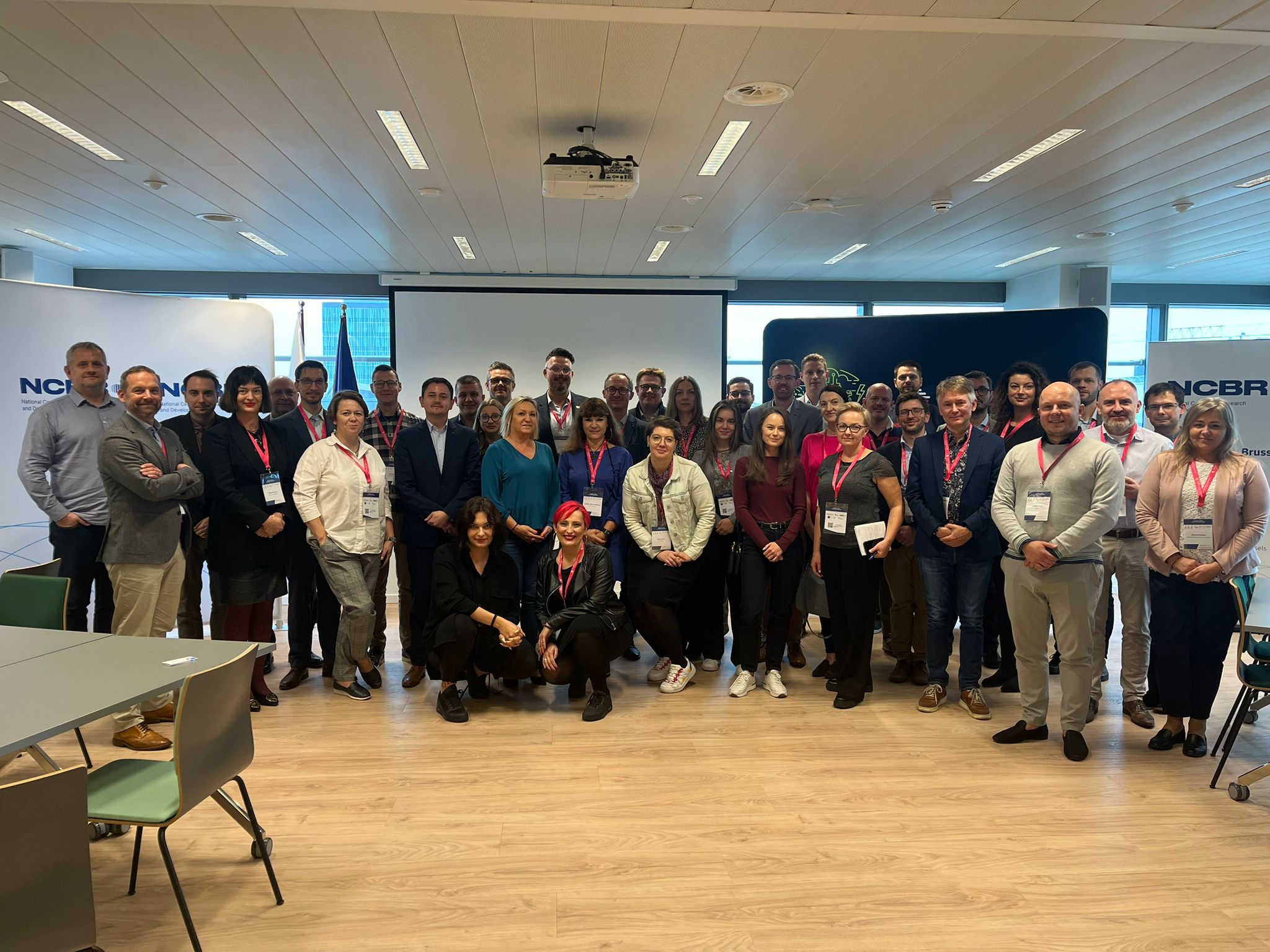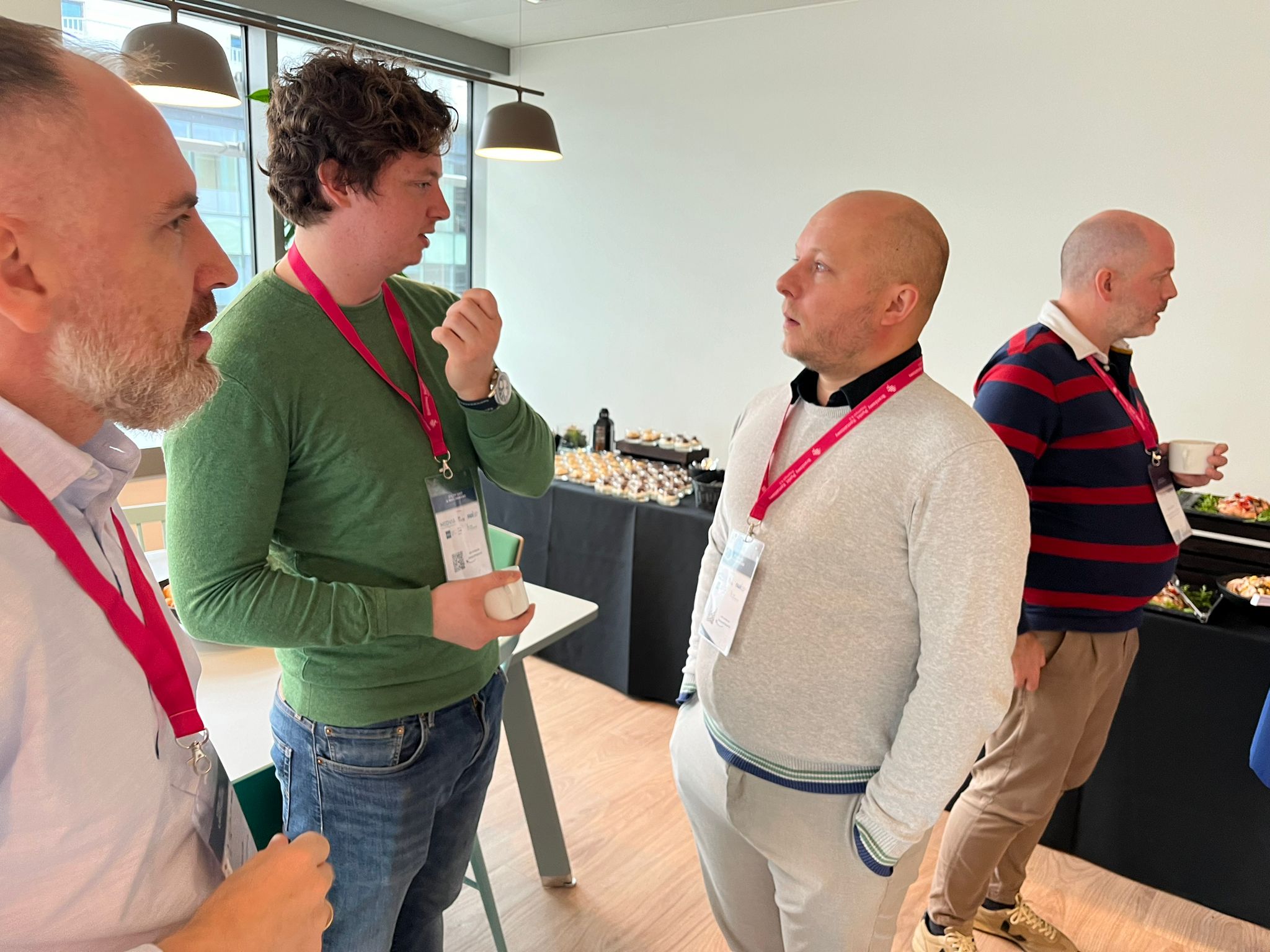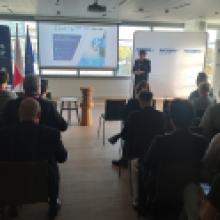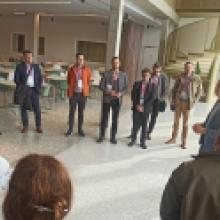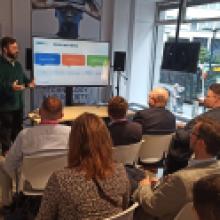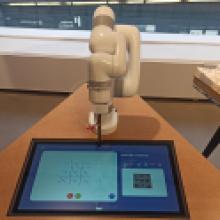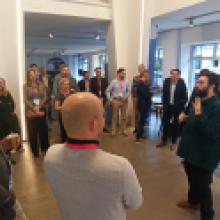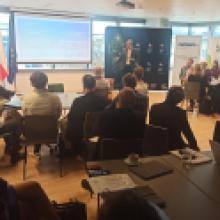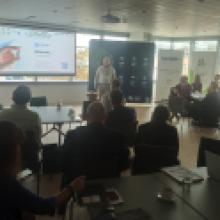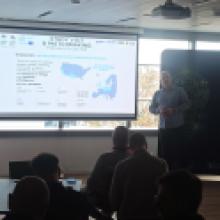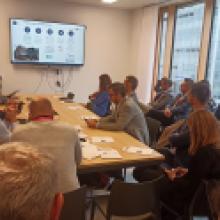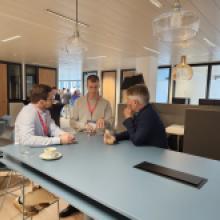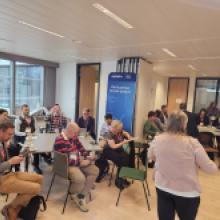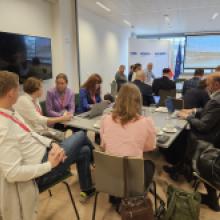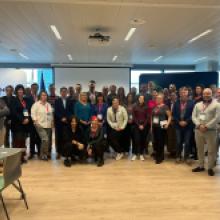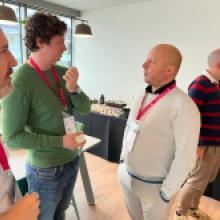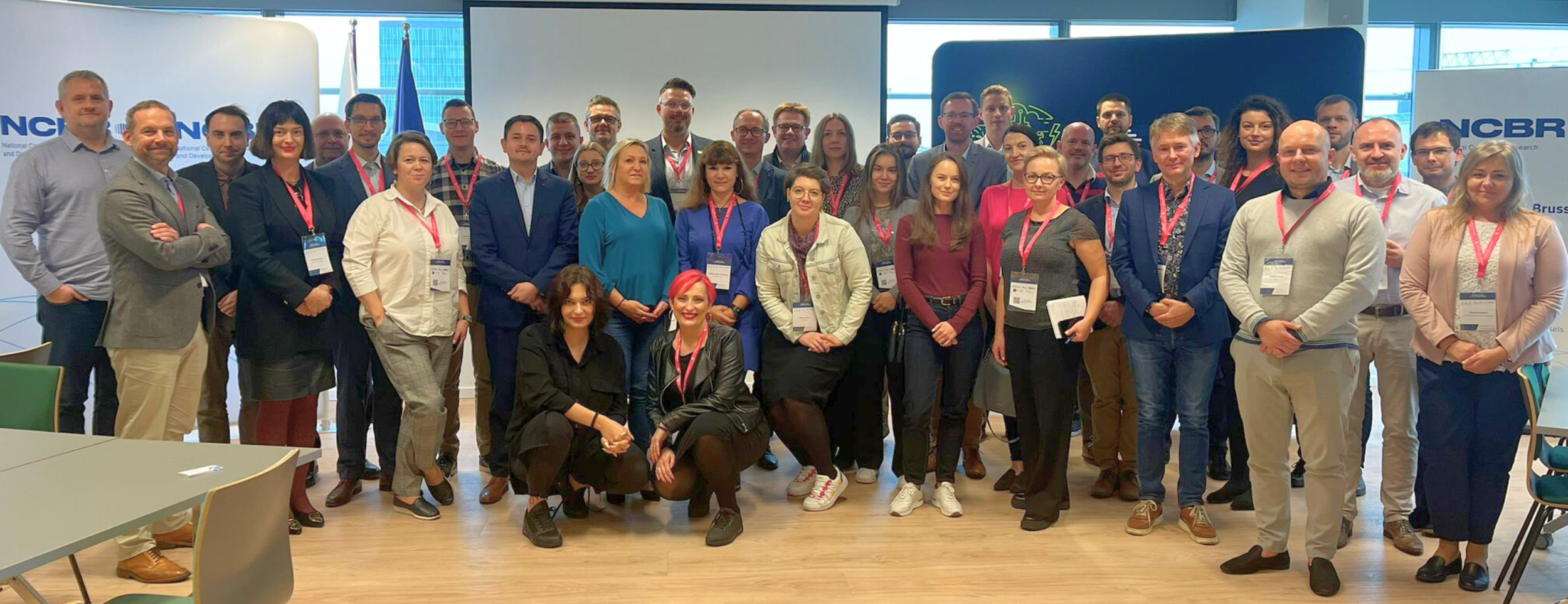
The study visit with matchmaking for the health sector, Brussels, 8-9 October 2024
A study visit combined with matchmaking took place in Brussels on 8-9 October, bringing together numerous representatives of hospitals, universities, start-ups and research organisations operating in the health sector from Poland and Belgium. The event, organised by BPK Medical Technologies and Health, BP
Industry 4.0, BPK Digital Transformation, EIT Health, the National Contact Point for the EU Framework Programmes and the Marshal Office of the Lower Silesian Voivodship, was primarily aimed at facilitating cooperation between European stakeholders, including organisations and associations operating in Brussels, presenting funding opportunities for innovative projects in the health and digital technologies sector, as well as creating a platform for the exchange of experience and establishing new contacts between start-ups, small and medium-sized enterprises (SMEs) and research institutions from Europe.
The event started with a presentation by Agnieszka Możejko from the Digital Transformation Industry Focal Point, who presented the structure and functioning of the main European institutions, such as the European Council, the European Commission and the Council of the European Union, with a focus on their activities in the area of health and digital innovation. This was an important introduction, especially for participants interested in financing projects with European funds.
This was followed by Tomasz Dyląg, head of the health industry sector at DG Research & Innovation, who discussed specific calls for funding for innovative health projects.
The next speaker was Filip Domanski, EU4Health programme specialist, who provided details of EU4Health, its objectives and the distribution of funds across four different work programmes. Domanski also discussed the synergies of this programme with other EU initiatives, which can help participants to successfully apply for funds.
After the session on EU policy, it was time to present the European Innovation Partnerships. Michael Barngrover, managing director of XR4Europe, discussed the activities of this pan-European organisation, which unites XR (augmented reality technology) professionals from across the continent. XR4Europe focuses on promoting XR innovation, as well as supporting the development of this technology in various industry sectors.
The next item was a discussion of the role of photonics in the development of innovation. Wendy Meulebroeck, professor and researcher at the Vrije Universiteit Brussel, presented the activities of the European Photonics21 platform, which has more than 4,000 members from industry and research institutions in Europe. Photonics21 is a key organisation supporting the development of photonics technologies, which play a key role in telecommunications, industry and healthcare, among others.
In a later session, Justyna Tisserand, advisory team leader at the European Innovation Council (EIC), presented funding opportunities under the Accelerator and Pathfinder mechanisms. The EIC is the EU's main programme supporting the development of breakthrough technologies and large-scale innovative solutions, with a budget of more than €10 billion.
Omolola Adanlawo from EIT Health discussed the organisation's work to strengthen health systems in Europe by supporting startups and promoting better health for citizens. EIT Health also collaborates with TEF Health's testing facilities, which offer support in testing and validating technologies for the health sector, which is key to bringing innovative solutions to market faster.
Dagmara Robakowska-Hyżorek, representative of the Horizon Europe National Contact Point for Health, presented funding opportunities under the programme, especially with a view to the upcoming 2025 calls.
After the morning sessions, the participants travelled to the city of Leuven, near Brussels, where they visited Bioincubator 4. Michael de Blauwe presented the opportunities offered by this innovative centre, which supports the development of biotech start-ups by offering them access to advanced infrastructure.
This was followed by a visit to Health House, a unique platform for innovation in health that connects researchers, entrepreneurs and healthcare institutions. A representative from Flanders.bio and Medvia presented the local biotech and medical cluster and participants had the opportunity to make valuable contacts with local stakeholders during a networking session.
The second day of the study visit focused on strengthening cooperation with Belgian research institutions and technology companies, particularly in the areas of artificial intelligence (AI), digital health and robotics. It was also a day of practical visits to healthcare facilities, which gave participants the chance to learn about innovative solutions in healthcare.
The day began with a visit to the headquarters of FARI, an independent initiative promoting the use of artificial intelligence for the common good. Led by the Vrije Universiteit Brussel (VUB) and the Université Libre de Bruxelles (ULB), FARI is a non-profit organisation with a community of 300 researchers in 10 research groups working on AI, data and robotics. Participants had the opportunity to learn about the activities of this initiative, which combines research with the real-world implementation of AI technologies, contributing to the development of innovation at European level.
This was followed by an introduction to the SustAIn Brussels project, which is the European Digital Innovation Hub. It was set up with the support of the European Commission, Innoviris and hub.brussels to support the development of sustainable digital technologies, especially AI, in Brussels. The presentation and a visit to the Test & Experience Centre gave participants the opportunity to learn about innovative solutions to support digital transformation and sustainability.
Another key highlight of the day was the networking meetings. Participants had the opportunity to meet representatives from Belgian technology companies and health organisations such as EFPIA, COCIR, IHI, BruBotics, Photonics'21, hub.brussels, lifetech.brussels, Brussels Health Network, ERRINHealth and Cancer Patients Europe.
These meetings were held in the form of thematic roundtables to discuss the latest technologies and innovations in digital health, photonics and robotics. Participants had the opportunity to network with important players in the European market, which has the potential for fruitful cooperation in the future.
In addition, two Polish companies from Lower Silesia presented their innovative solutions in short presentations:
- BioCam, developer of an innovative endoscopic capsule for non-invasive detection of gastrointestinal diseases
- Thaumatec, a software house specialising in HealthTech technologies that combine the Internet of Things (IoT) with AI to create solutions that support health at various stages - from prevention to treatment to rehabilitation
In the afternoon, participants travelled to the HUB hospital (Hôpital Universitaire de Bruxelles), where they took part in visits to two prominent health centres.
The Jules Bordet Cancer Institute is one of the leading cancer treatment and research facilities in Europe. Participants were welcomed by the local team, who presented the history and mission of the institute, and discussed the research being conducted and innovative cancer treatments. The visit included a presentation of the hospital's activities and a tour of key laboratories.
The final item on the agenda was a visit to Erasmus Hospital, where participants toured two departments: the Anatomical Pathology Department and the Gastroenterology Department.



